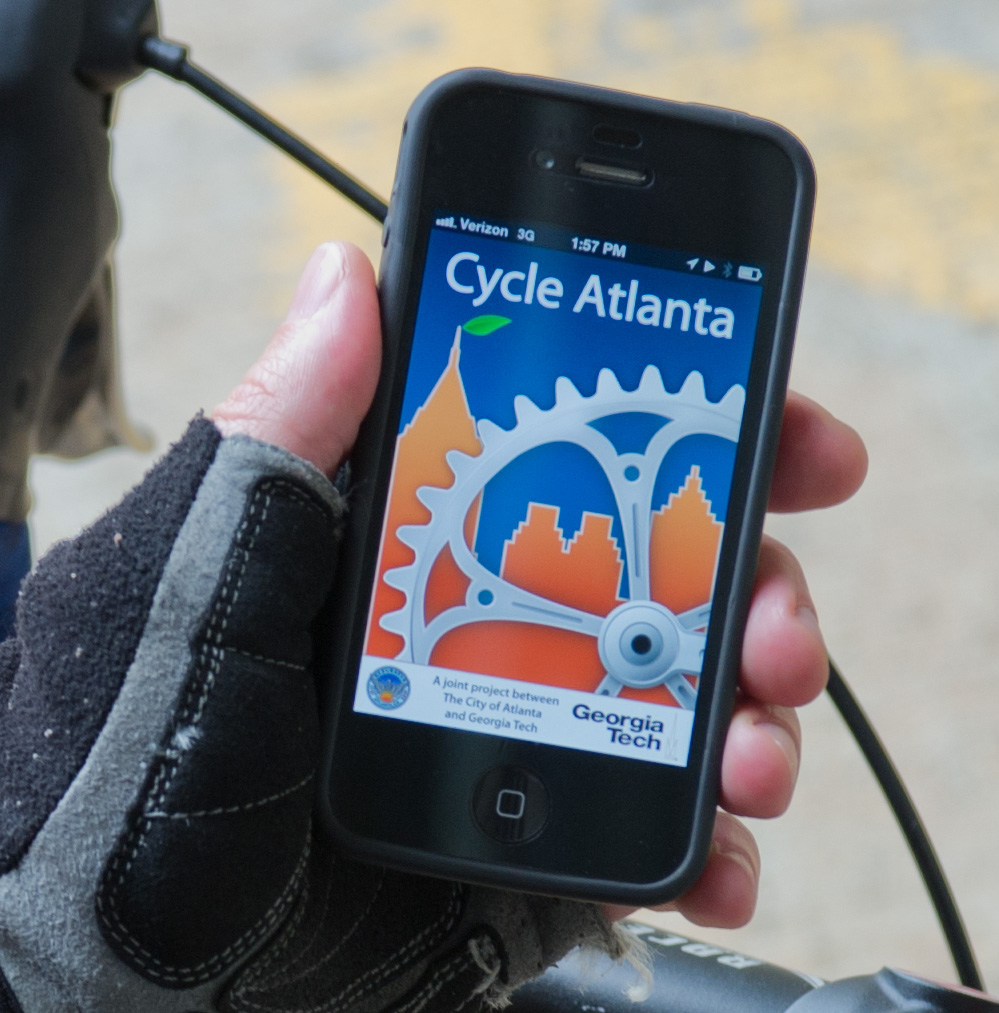
A smartphone app and related study for Atlanta bicyclists has won the first-ever Excellence in Innovation / Research of the Year Award from the Young Professionals in Transportation organization.
A smartphone app and related study for Atlanta bicyclists has won the first-ever Excellence in Innovation / Research of the Year Award from the Young Professionals in Transportation (YPT) organization.
The Cycle Atlanta app, developed by CEE’s Kari Watkins and Christopher Le Dantec from the School of Literature, Media, and Communication, tracks the routes cyclists travel through the city and allows them to note amenities or problems along the way.
That helps other riders, and it helps the city develop cycling infrastructure in the right places.
“Alta Planning + Design and the City of Atlanta used the data we collected in Cycle Atlanta — which corridors do cyclists currently prefer — in their planning process for the larger study,” Watkins said. “They were able to conclude things like [cyclists’] desire to use Peachtree Street as evidenced by the large number of trips there despite no bike infrastructure. We were also able to see [cyclists’] preference for bike infrastructure by looking at trips before and after the eastside BeltLine was opened.”
In the award announcement, YPT noted the significant reach of the app and the Cycle Atlanta: Phase 1.0 Study in shaping how bike riders travel through the city to a variety of daily destinations:
“[The project] represents a strategy to create a complete and connected network of high-quality bicycle facilities in the core of Atlanta. The focus of the study is on five cycling corridors that extend from the Atlanta BeltLine into the center of the city. Completing the bikeway network along each of these corridors will improve cycling conditions and expand route options that are desirable for a wide range of cyclists.”
The study, led by Brad Davis and Josh Mello from Alta Planning + Design, wrapped up in spring 2014. Now neighborhoods, the city, and the Georgia Department of Transportation are using it to coordinate bike projects along the five study corridors.
Atlanta officials also used the research to develop some of the projects included in the city’s recently passed infrastructure bond referendum.
Meanwhile, Watkins said her team continues to refine the Cycle Atlanta app and find new uses for the data.
“The Atlanta Regional Commission is now working with us to expand usage of the app regionally,” she said.
“Since the beginning, Atlanta Bike Coalition has been a strong promotional advocate to build up the number of users who are recording trips. Those organizations were also the ones who funded the larger study so that the city could hire a consultant to work on it. It takes a village to collect bike data!”
